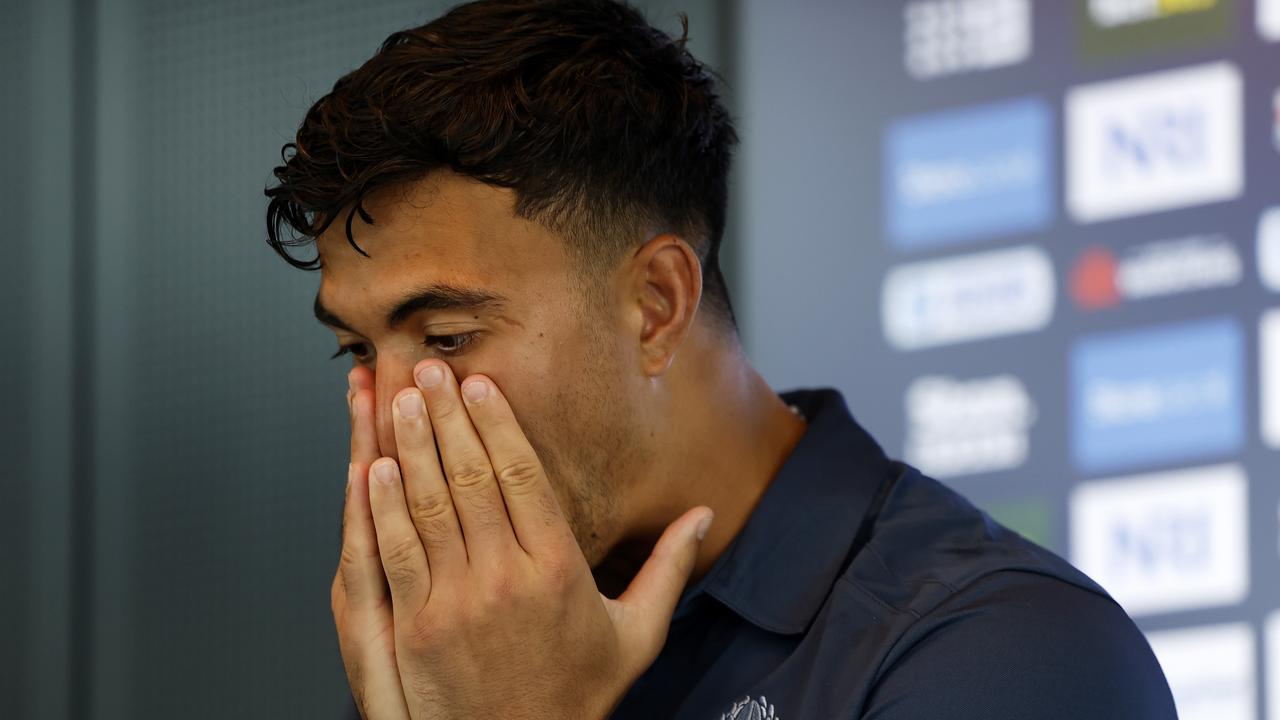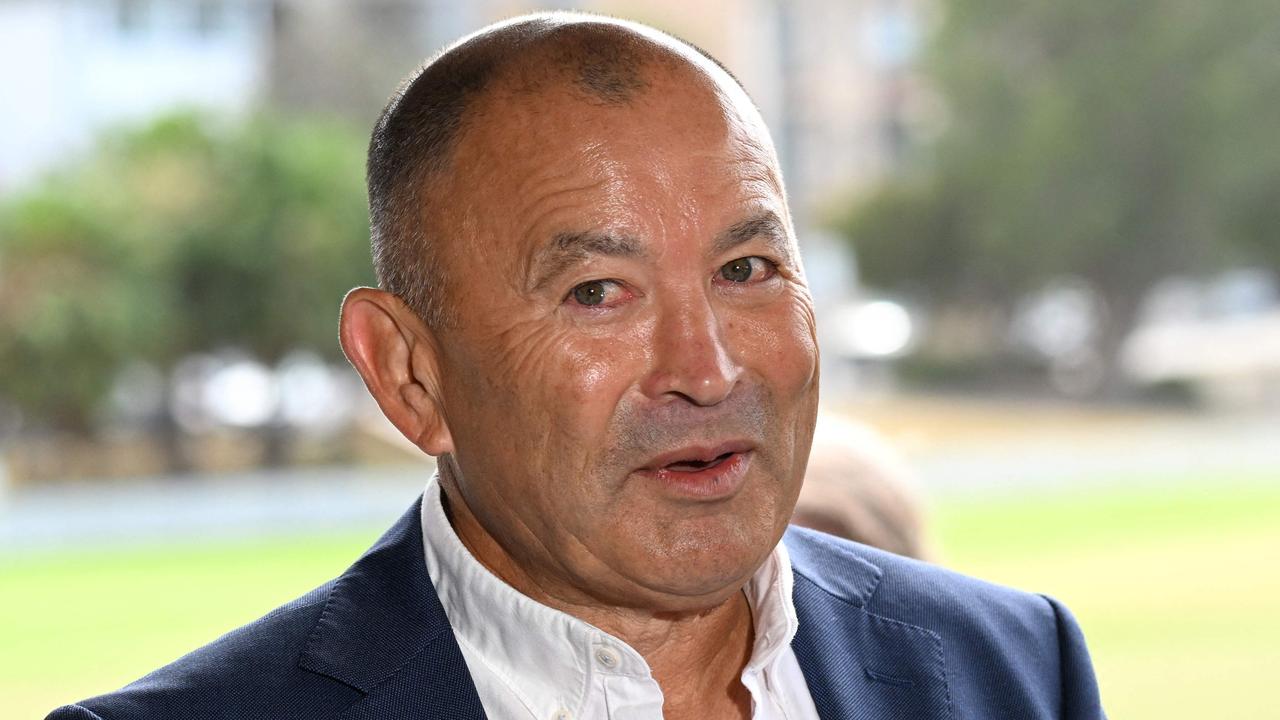Israel Folau shines brightest as Wallabies give hope of better times ahead
IN a turbulent 2013 the Wallabies found light at the end of the tunnel. We look back at the year that was - and what awaits.
Rugby
Don't miss out on the headlines from Rugby. Followed categories will be added to My News.
WINNING, they say, fixes everything.
It's been a long while since Australian rugby had proof of that particular cliche but with envious eyes cast across to the baggy green brigade, the end of 2013 has finally given hope brighter times await.
A year that ended with four straight wins left Australian rugby on an optimistic note after a wild, 12 month-ride that resembled a trip across Bass Straight. In a leaky dinghy.
There were occasional surging peaks, lots of troughs, seasickness and a captain lost overboard. But the journey at least finished with the sight of land when the Wallabies returned from a November tour with four straight wins for the first time since 2008.
Here we take a look back at the year that was - and the one that awaits.
ENTER THE PULVERISER
So much happened in 2013 it's easy to forget Bill Pulver's appointment as the successor to John O'Neill as chief executive officer came in early January. Pulver was anything but idle in swinging Miley Cyrus' wrecking ball into the house JON built and drawing up a whole set of plans.
Pulver swiftly put the ARU through a massive re-structure, slashing costs with reduced staffing levels and office space amid repeatedly grim financial forecasts for the future.
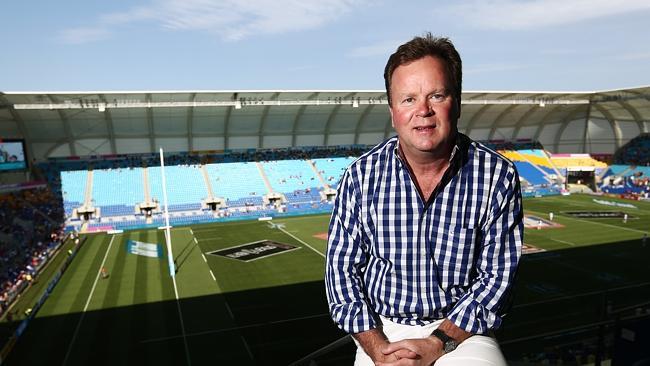
Some said it was an overly pessimistic public stance, with sponsors already shying away from the market.
Big calls from Pulver - rugby wise - came in the second half of the year. Following a lost Lions series, the new boss removed Robbie Deans and appointed Ewen McKenzie as new Wallabies coach, and later made the call to not offer square peg star James O'Connor a new contract. (He is now overseas and appears likely to stay there for several years). With an emphasis on investing development pathways, Pulver finished the year by reviving a much-talked-about third-tier competition, the National Rugby Championship, for 2014.
SUPER STUFF
With the Lions tour still ahead of them, Australia's Super Rugby sides started the year promisingly, notably by notching up a dominant record against Kiwi teams. The Brumbies proved the best of the bunch, and after a strong regular season, won the Aussie conference. Late season lapses cost them a top-two finish though, meaning drastically slimmed hopes of a Super title won on the road. A historic semi-final win in Pretoria was one of the greats, but travel cost them down the stretch in the final against the Chiefs in Hamilton.
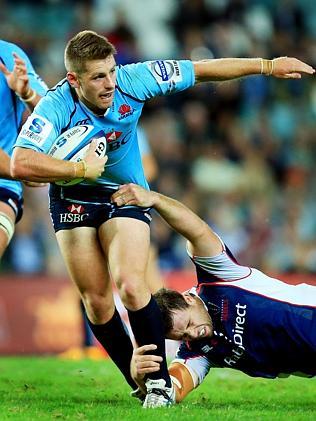
With Jake White subsequently quitting as coach, the jury is out on whether the Brumbies' "premiership window" will still be open for new boss Stephen Larkham in 2014 but the Waratahs loom as a side trending up. Michael Cheika's cultural revolution saw the Tahs painstakingly bed down a run-and-gun style in 2013, and though early hiccups derailed any finals push, the attacking intent was clear and - encouragingly for fans after years of conservative drudge - doggedly applied by Waratahs players. Stars shone in the form of Israel Folau, Michael Hooper, Bernard Foley and Adam Ashley-Cooper. Throw in Kurtley Beale, Nick Phipps and Jacques Potgieter and the 2014 forecast appears bright.
Queensland start life without McKenzie this year, with Richard Graham stepping into the head coach role. As ever, though, their fortunes rest on the dynamic 9-10 duo - Will Genia and Quade Cooper. Both returned from bad knee injuries last season and took time to settle in their world-class partnership, but both ended the year in superb form for the Wallabies. The loss of Digby Ioane to France is a blow but Lachie Turner's signing provides experience.
Melbourne need a rebirth, and look to have undergone one. The Rebels battled with off-field issues, including a decision to stand Beale down with alcohol issues (following a punch-up with Gareth Delve and Cooper Vuna), and then calls to jettison the troubled back and fellow Wallaby James O'Connor. Coach Damien Hill was also let go after another year of mixed results on field. Hard-edged Tony McGahan has taken over, and with Scott Higginbotham thriving as skipper, confident noise from the Rebels is already seeping out.
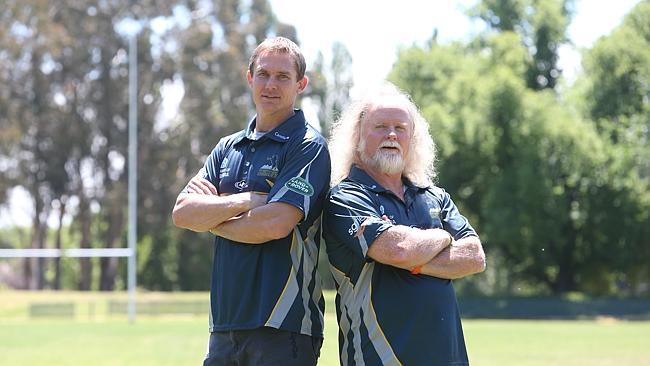
The Force had a new coach Michael Foley but the same old problem - a lack of consistency - lingered. Their year was summed up by nominating two half-strength sides to play the Lions and Waratahs in the same week in June, and losing both games. Solid recruitment in the off-season is a bright note for Force fans,
LION TAMED
Amid enormous hype, a cracking opening Test in Brisbane delivered for almost everyone. Folau scored twice on debut, the Lions responded and Beale had a post-siren kick to win - but slipped and missed.
The hosts put aside distractions of a James Horwill stamping charge and a midweek O'Connor/Beale burger bar visit at 4am to fight back in Melbourne, winning a tight but dour second Test. The series was alive and in a giant build-up to the decider, drama off-field threatened to overshadow anything to come on it - the IRB appealed Horwill's exoneration (and lost again), George Smith won a Wallaby recall and Brian O'Driscoll was dumped by Lions coach Warren Gatland.
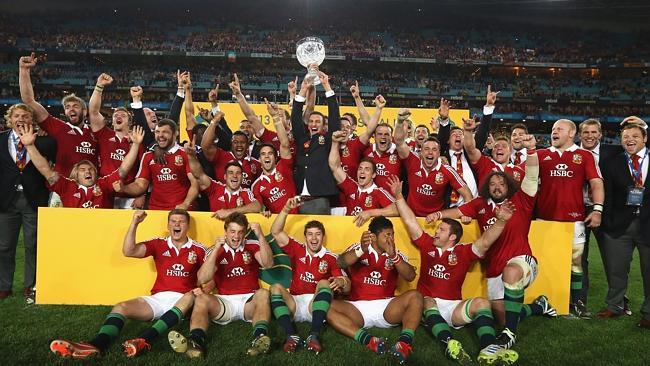
But fielding 10 Welshmen, the Lions went on to humble the Wallabies 41-15 in the final Test in Sydney. The tourists ran in four tries to win their first series since 1997, and sign the death warrant for Deans.
With Pulver having already canvassed two replacements before the series, Deans "resigned" as Wallabies coach two days after the loss and McKenzie beat White to claim the post.
EXIT THE DINGO
Deans achieved significant things for Australian rugby but his five-and-a-half year stint will go down in the books as an era of near enough- but not nearly good enough. Deans' reputation as a title-winning juggernaut with Crusaders provided sufficient capital to burn in an often painful first four years of "rebuilding", but despite some glimpses of encouragement, a strategically haywire Wallabies side ultimately failed at the pay-off - the 2011 World Cup. Straining floodgates of enmity then opened for Deans, and following a dismal slide into conservatism in 2012, only victory over the Lions could have saved his name and his job. Weak capitulation in the third Test painted the bullseye and made it all too easy for the ARU to pull the trigger.
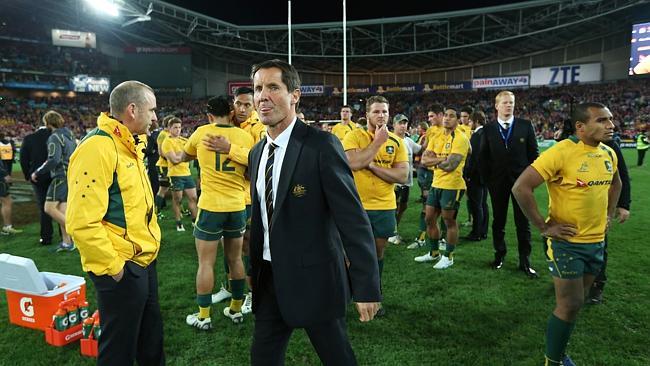
In the credit column, Deans promoted vast numbers of talented players, forged a strong record against the Springboks, took the team to second in the world for long stretches and was a tireless contributor to community rugby and charity. Disappointingly perhaps, a reserved nature and cryptic media style kept Deans' good deeds - and affable nature - too well hidden.
Detractors can rightly point to failures. Even accounting for the All Blacks fielding one of history's great teams when looking at Deans' 3-15 trans-Tasman record, the Wallabies often appeared more fodder than foe against the All Blacks. Rarely did the coach radically change tactics to rumble the Kiwis out of their preferred rhythm, as France does successfully. Kiwi players have said privately they felt they had Australia's measure under Deans.
Record Test defeats, embarrassing losses to minnows, roller-coaster form, unresolved scrum weakness, numerous fallouts with senior players and a fatal slip in team culture all came on Deans' watch as well.
Deans desperately wanted to coach on to 2015 but in reality, as soon as O'Neill left, the Kiwi was on borrowed time.
MCKENZIAN ERA
Optimism was in strong supply when McKenzie took over and brought a bunch of in-form - but previously ignored - players with him. Despite glimpses of early fight, two losses to the Kiwis off the bat - and a record-breaking loss to South Africa in Brisbane - was a painful reality check that change would - again - take time. Cultural challenges swiftly emerged too, but O'Connor's episode in Perth airport saw McKenzie flex muscle and suspend him indefinitely.
McKenzie's willingness to violently rock the boat continued almost weekly. He dropped Will Genia and later stripped James Horwill of the captaincy and handed the duties to first-year rookie Ben Mowen (with Quade Cooper as an eyebrow raising deputy).
More defeats followed but soon enough McKenzie's pledge that the "wheel would turn" began to occur. Displaying attacking rugby with lots of tries, the Wallabies thrashed Argentina and pushed New Zealand hard in Dunedin.
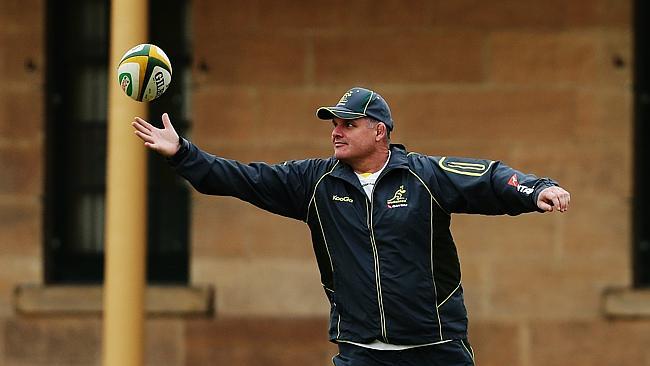
A flat loss to England at the start of the Spring Tour - with dubious refereeing thrown in - set a bad opening note but four impressive victories over Italy, Ireland, Scotland and Wales followed; the first such streak in five years. After enduring a longer meat pie drought than Peter Siddle, Wallaby fans were treated to 26 tries in Australia's last seven Tests. With Quade Cooper and Israel Folau firing, the reputation of Australia as one the world's best attacking teams was instantly revived.
Notably, the form of motivated men like Genia and Horwill was at the forefront.
With more hardline cultural adjustment deployed by McKenzie mid-tour (six Wallabies were suspended and another nine warned for midweek drinking) garnering good response back home, the settled gloom above Australian rugby of the last few years finally appeared to lift. With names like David Pocock, Higginbotham and Wycliff Palu to return, is that the sun on the horizon?
PLAYER OF 2013
Leap forward Israel Folau. Rarely has Australian rugby had a player who threatens with every single touch, and his elevation to world XVs everywhere highlighted the fear factor he now brings to the table for the Wallabies.
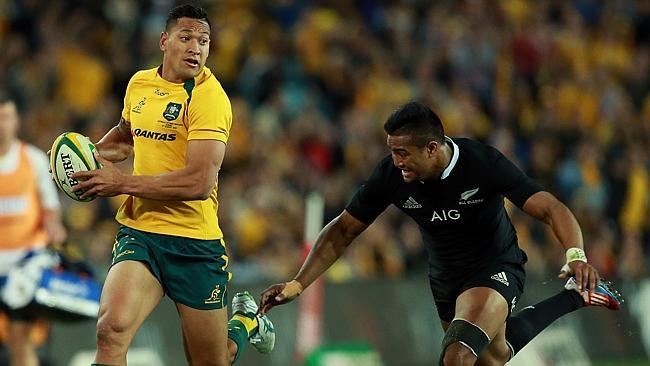
His aerial brilliance was well-known in league and AFL, but rugby has arguably provided the best canvas for Folau's footwork to shine. The 24-year-old's retention until the 2015 Rugby World Cup was comfortably the best news of a mixed year for Australian rugby.
RUNNERS-UP
Michael Hooper and Stephen Moore. Two tireless Wallaby forwards who not only continually put in, but helped forge an aggressive attitude at the contact zone that had been missing for a few seasons.
NEWCOMER OF 2013
Scott Fardy, just ahead of Ben Mowen. An old-school, bearded Australian backrower who doesn't quit.
MUST IMPROVE THIS YEAR
Quiet enough to lose the captaincy, James Horwill finished the year in a combative mood and must continue in 2014.
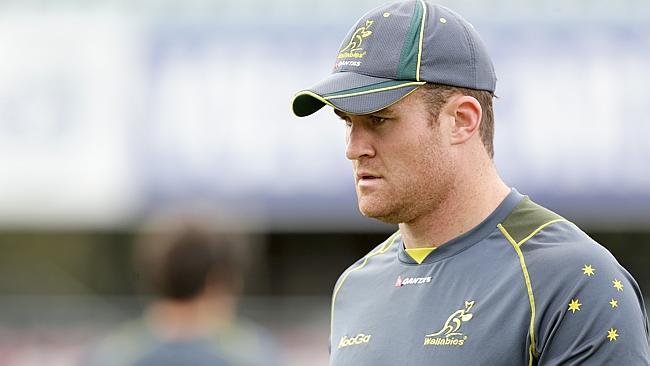
QUOTES OF 2013
"He will be scary when he comes to terms with the game. He could be Australia's silent assassin".
Jonah Lomu on Israel Folau in May. By December he had equalled Lote Tuqiri's Wallaby record for 10 Test tries in a year.
"We like to sit as coaches and take a lot of the credit for it but you can't put in what God left out and he stood in the front of a few genetic queues."
Scotland coach Scott Johnson on Folau in November.
"It has been a rewarding five years and I am proud of all that we have achieved."
Robbie Deans in a statement after resigning as Wallaby coach in July. He hasn't said anything since.
"There were probably times when Robbie put a lot of faith in young guys and maybe they let him down."
Stephen Moore on past cultural problems in the Wallabies.
"I've said to him he's quite capable of playing 150 Tests if he wants to but he isn't going to if he doesn't get his off-field stuff sorted."
Ewen McKenzie on James O'Connor.
"If you are too ignorant not to learn from your mistakes, you are never going to improve as a player or a person. I learned a lot from having my time out, from being injured and not being part of the team."
Quade Cooper on growing up after his "toxic" comments, returning to the Test team and being elevated to Wallabies vice-captain.
"This business is about making sacrifices, it's not about going on a Contiki tour of countries."
McKenzie after suspending six players and warning others for midweek drinking on the Spring Tour.
"Do I resent him? Yeah, there's resentment of course. Is he on the Christmas card list? Unlikely".
Brian O'Driscoll on being dropped for the decider by Lions coach Warren Gatland.
"Me thinks #AussieBashing will be trending all summer ...!!!"
Ex-England cricket captain Michael Vaughan after the Lions beat the Wallabies. Maybe not.
"I was feeling disillusioned with where my career was going in Australia. The bottom line is I just wanted to move on (from the Brumbies). Families allow family members to move on."
Jake White on how missing the Wallabies job prompted him to quit - and take up a coaching role with the Sharks.

